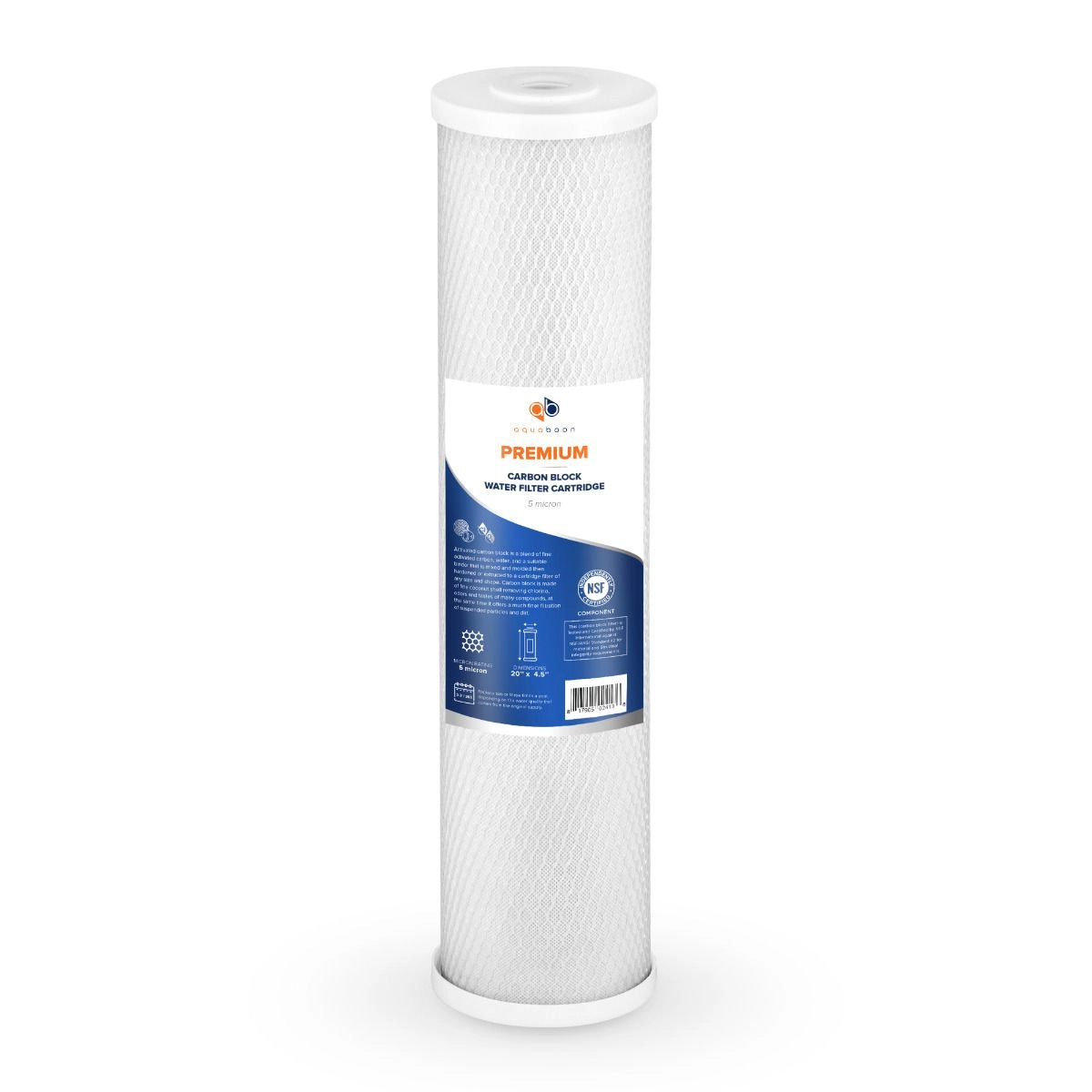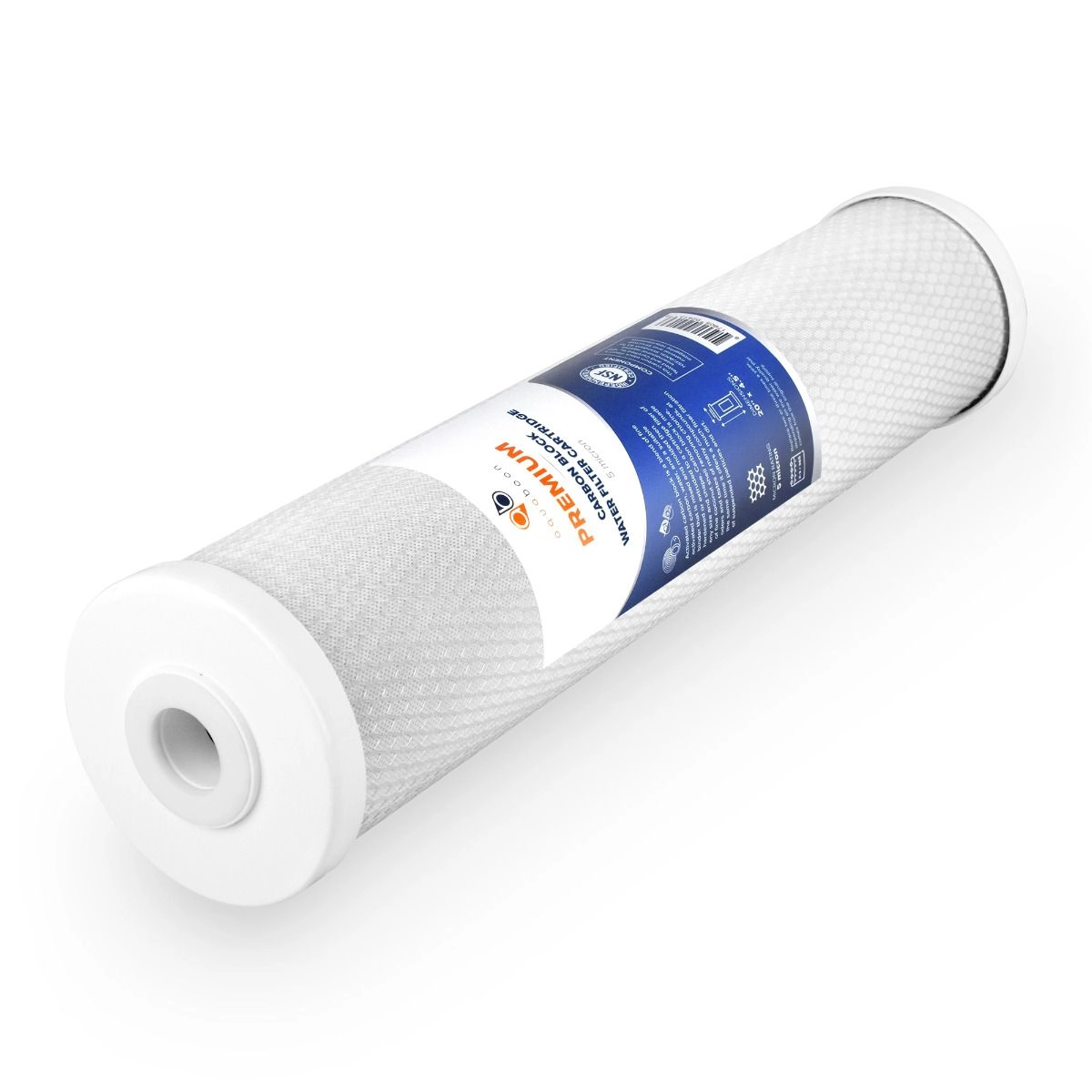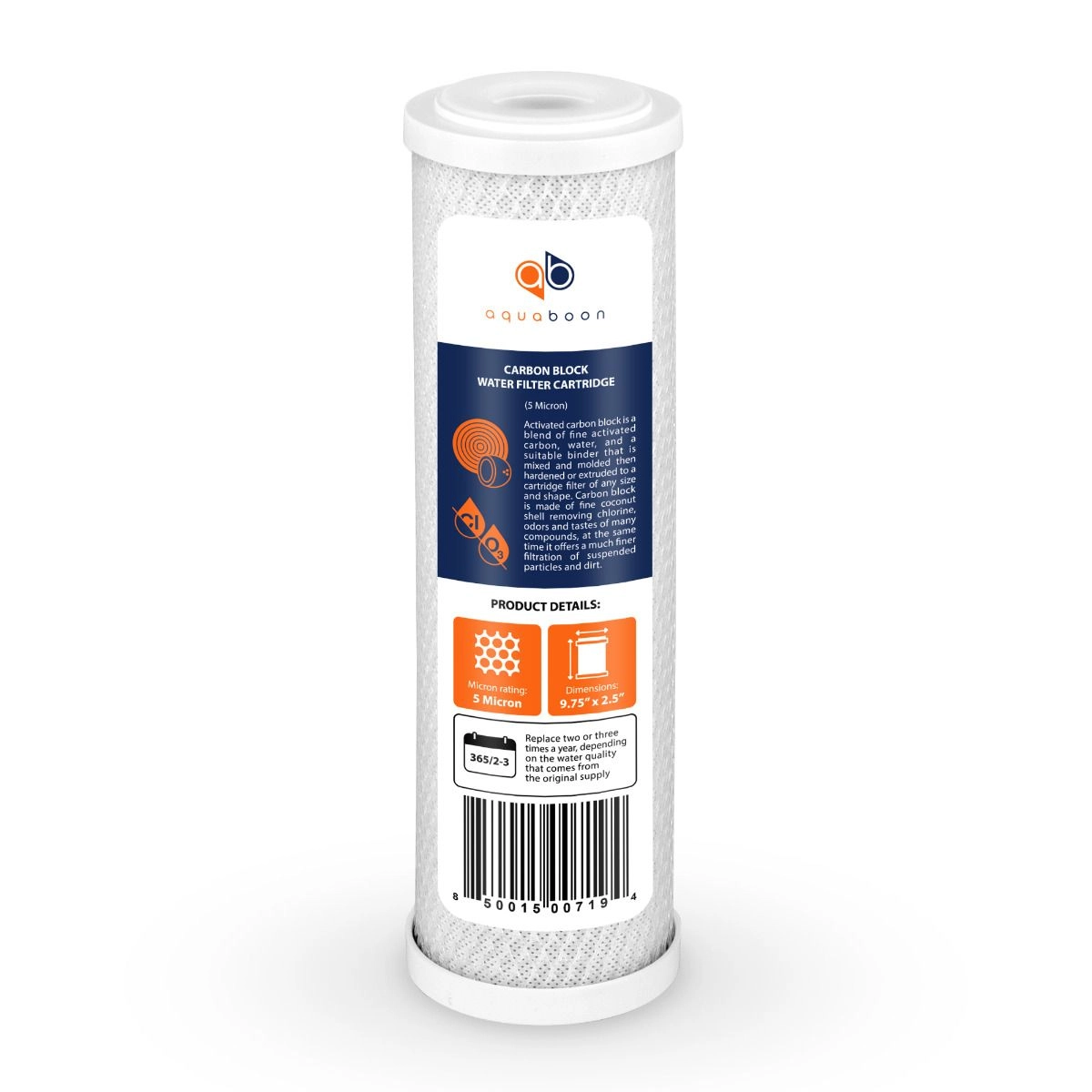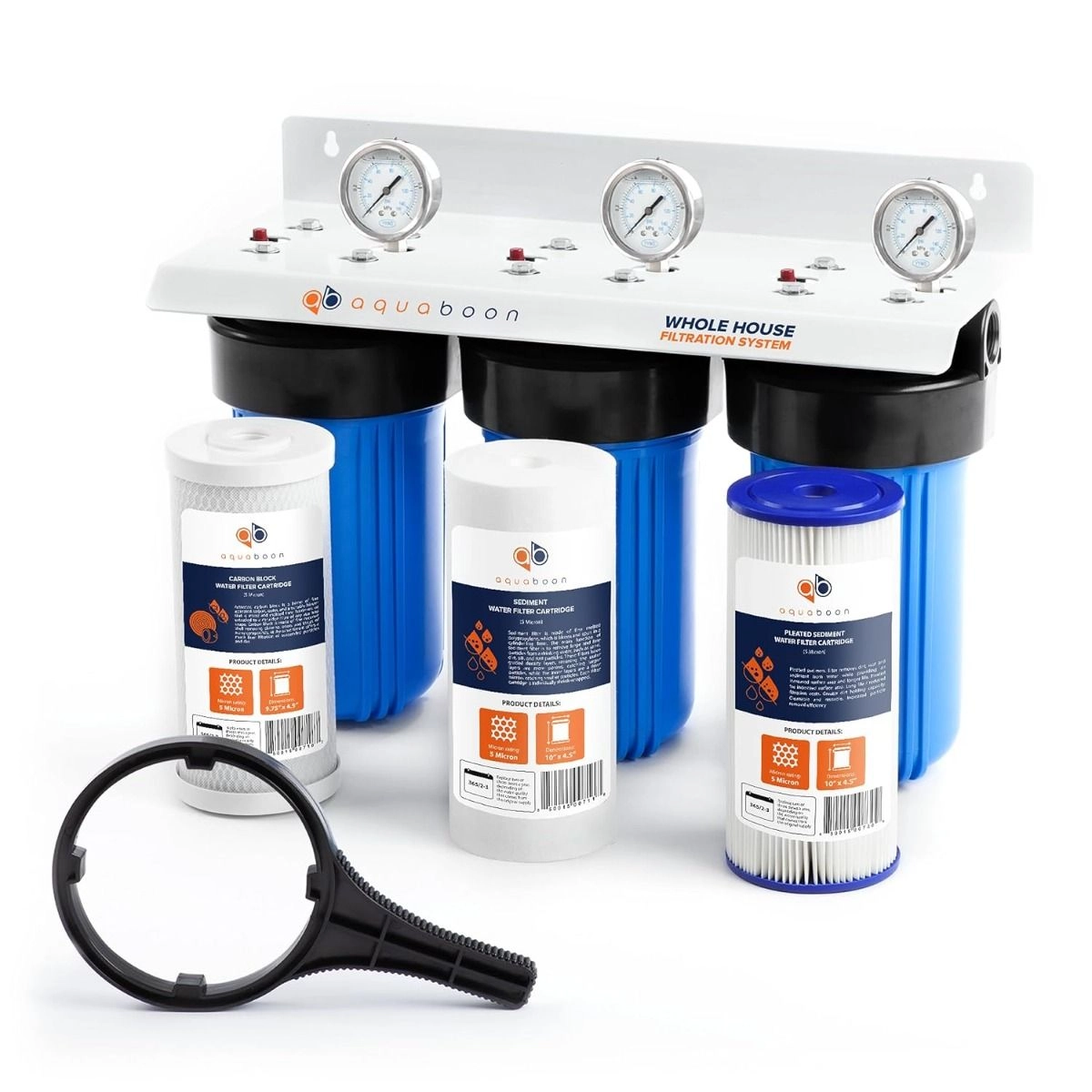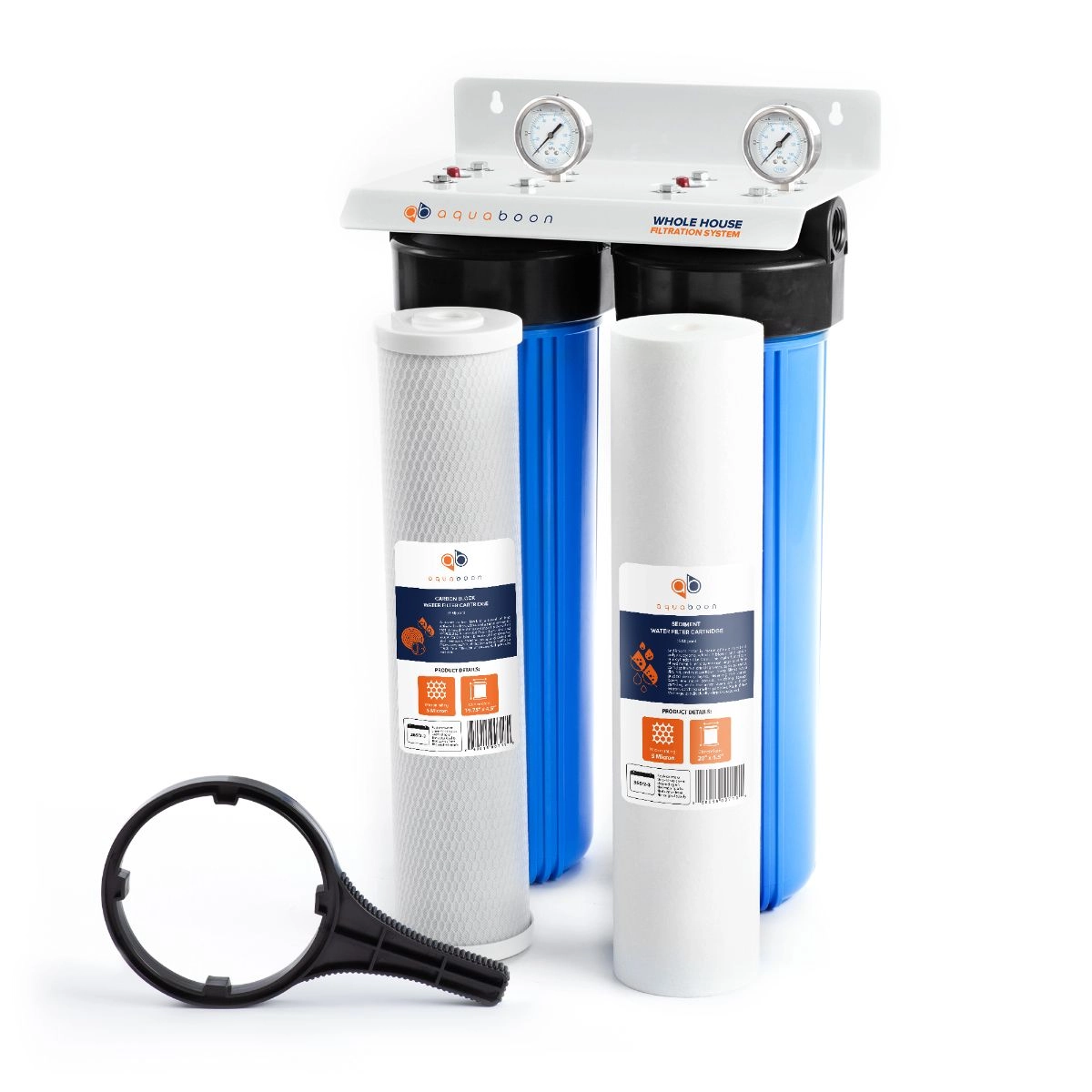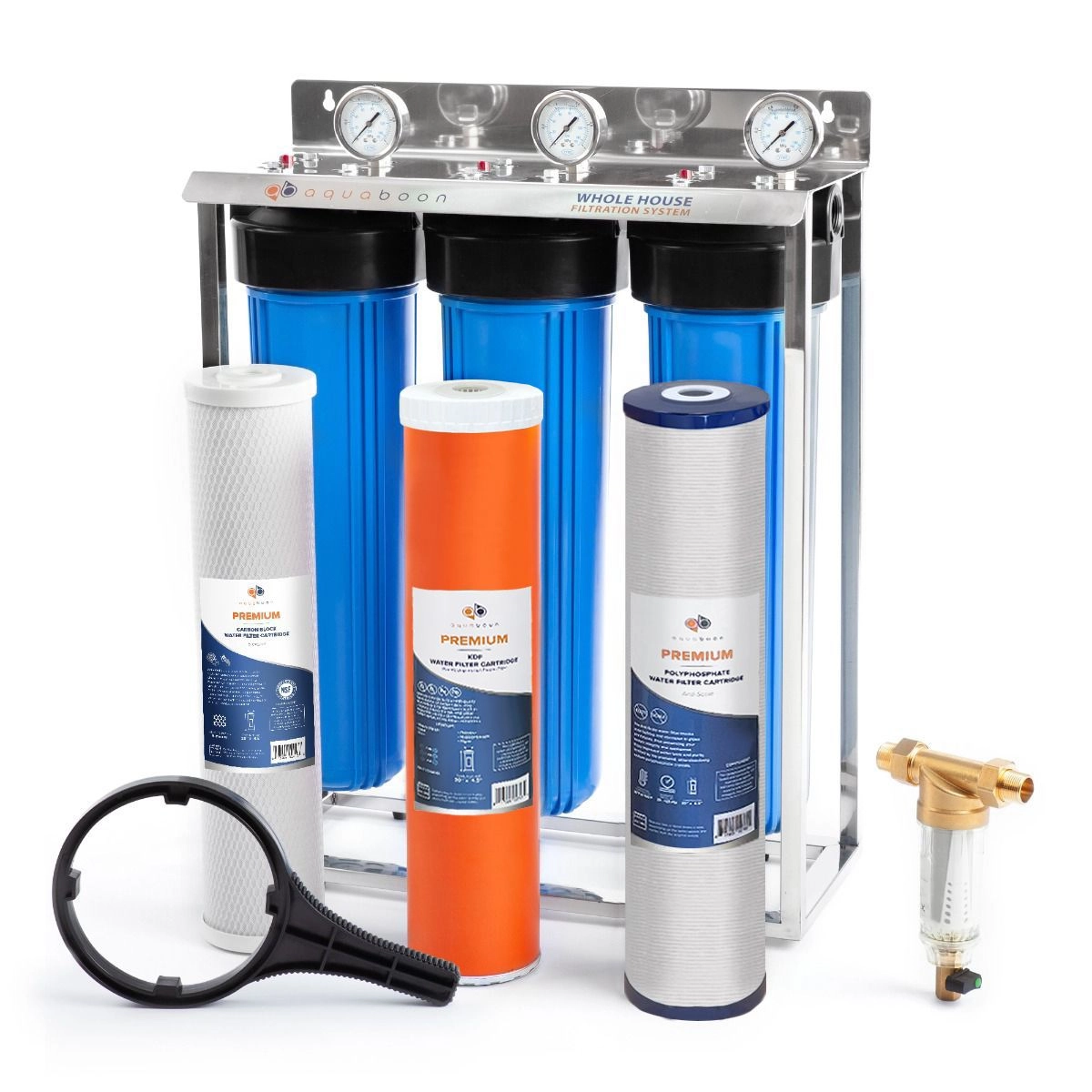Best filters to remove chlorine


Most households in the US have chlorinated water running in their pipes. After all, 86 percent of these households receive their supply from the municipal where water treatment is done with chlorine to eliminate bacteria, cysts, and viruses.
Since chlorination is the cheapest and most popular method of disinfecting water, it is commonly used in the general treatment of water, explaining the chemical taste you may have noticed in your drinking water.
Even though the CDC states that 4 PPM of chlorine in water is considered safe enough, it still significantly affects the water’s taste and can irritate your skin and hair.
Luckily, you can purify your H2O with the best water filter for removing chlorine. But, let’s start by looking at the effects of chlorine in drinking water on your health.
Effects of chlorine in drinking water on health
Chlorine is mixed with other disinfectants, including chloramine, to combat water-borne diseases.
Regardless of the chemical disinfectant used, by-products like trihalomethanes, haloacetic acids may form when they mix with other components of H2O. These by-products and chemical disinfectants have significant side effects on the human body.
Chlorine can damage the skin, especially if left after a shower. The combination of hardness and chlorine strips its natural oils, causing dryness, rashes, itchiness, psoriasis, and eczema outbreaks.
It can also leave your hair dry, faded, brittle, and prone to dandruff and hair loss.
The by-products are also cancerogenic, implying an increased breast or bladder cancer risk.
Plus, it may cause reproductive problems in adults and nervous system effects in infants and small children.
Best filters for removal of chlorine from water
Here are the best filter to remove chlorine from water
Activated carbon filters
Activated carbon filters are made from organic materials, like coconut shells. They are one of the best ways to purify chlorinated H2O by removing its by-products, chemical taste, and odor.
You can either get it as a carbon block or granular activated carbon. Either way, the carbon filters will remove about 99.9% chlorine from your drinking water.
Ceramic filters
Ceramic filters can remove chlorine from water, especially if used with carbon filters. It features bacteriostatic properties because of the silver and a carbon block insert in the ceramic to remove chlorine and other contaminants or industrial solvents.
The ceramic filter removes particulate matter, bacteria, cysts, turbidity, and chemical taste and odor. Plus, the pre-filter removes sand, rust, and other floating solids.
Reverse osmosis filters
Complex reverse osmosis filters feature carbon block and granular activated carbon filters, ensuring you get chlorine-free, tasteless, and odorless water.
The system also promises the best apartment water filter to trap and remove chlorine, its by-products, lead, fluoride, arsenic, nitrates, pesticides, and more.
Gravity filters
The gravity filter eliminates the different forms of chlorine in drinking water. The filters also remove up to 99.9% chloride, residual chlorine, and chloramine.
The system assembly is affordable, quick, and easy, the filtration process is fast, so there are no long waiting times, and the maintenance is simple.
Whole-house filtration systems
The whole-house filtration system employs a mixture of catalytic carbon and KDF to eliminate chlorine taste and odor at entry.
The KDF prevents the accumulation of sediments, chemicals, organic contaminants, and heavy metals. It is one of the best water filters for removing chlorine, guaranteeing clean and healthy drinking water. Plus, it is easy to install and maintain.
How to pick the best water filters to remove chlorine
Here is a guide to help you select the best water filters for chlorine in your home.
Test your water
The first thing to do when choosing a filter system is to do a test to check if there are any contaminants. Then you can select the most appropriate method for eliminating the pollutants.
You can check the most recent public records of your municipal supply. However, if your water supply is private, you should consider testing in a lab or with a test kit at home.
Select filter type
Water filtration systems are available in either a Point of Use (or POU) system or a whole house system (Point of Entry). You can choose one of these options depending on your requirements.
Suppose you want an independent device to filter particular parts of your home. In that case, you can go for the Point of Use system—for example, the shower filter for water or the under-counter filter only for the kitchen faucet.
The whole house system aids in filtering chlorine and other pollutants from the main entry point, so every part of your house gets clean, purified water.
While it may be more expensive, you can rest assured that every water dispensing point in your home is clean and healthy.
Take a look at filtration capacity & flow rate
For whole-house filters, water must run at a minimum flow rate within a given time. Its pressure should be high enough to pass through the filters; otherwise, there will be a significant drop in the water flow.
However, you may combat this by getting a water pump to increase the pressure in the line.
High-quality and long-lasting filter cartridges are often more convenient and affordable for filtration capacity and will prevent frequent replacements.
Check installation and maintenance
If you want to get a whole-house filtration system, you will need to employ the services of a qualified plumber for the installation. So, you may want to consider any of the point-of-use systems if you want something faster and more affordable
The best option for you will be the pitcher filter system, where you do not need installation.
Besides the extra installation cost for the plumber, whole house filtration systems often occupy much space, like your garage.
Then for the maintenance, find out how many filters you may need to change and how often you will have to change.
The maintenance cost for point-of-use systems is often more than that of whole-house filtration systems. But the initial cost of the latter is more expensive
Does boiling water remove chlorine?
Yes, boiling water removes chlorine. However, you may not need to boil it; heating the water will do the trick. In fact, at room temperature, the weight of chlorine gas is less than air, so it will naturally evaporate even without boiling.
Note: It takes about 10 to 20 minutes for chlorine to dissipate, but the precise time may be lower or higher depending on the amount of H2O and chlorine concentrations.
Conclusion
Exposure to chlorine can be dangerous to adults, children, and pregnant women, as it causes skin irritation, dry scalp, eczema, and reproductive problems, even at suggested “safe” levels.
That is why Filterway offers a full range of water filters that remove chlorine and its by-products and improve the taste and odor of tap water.
We have some of the best whole house 10 x 4.5 water filters for small families and complex filtration equipment for homes and facilities.

